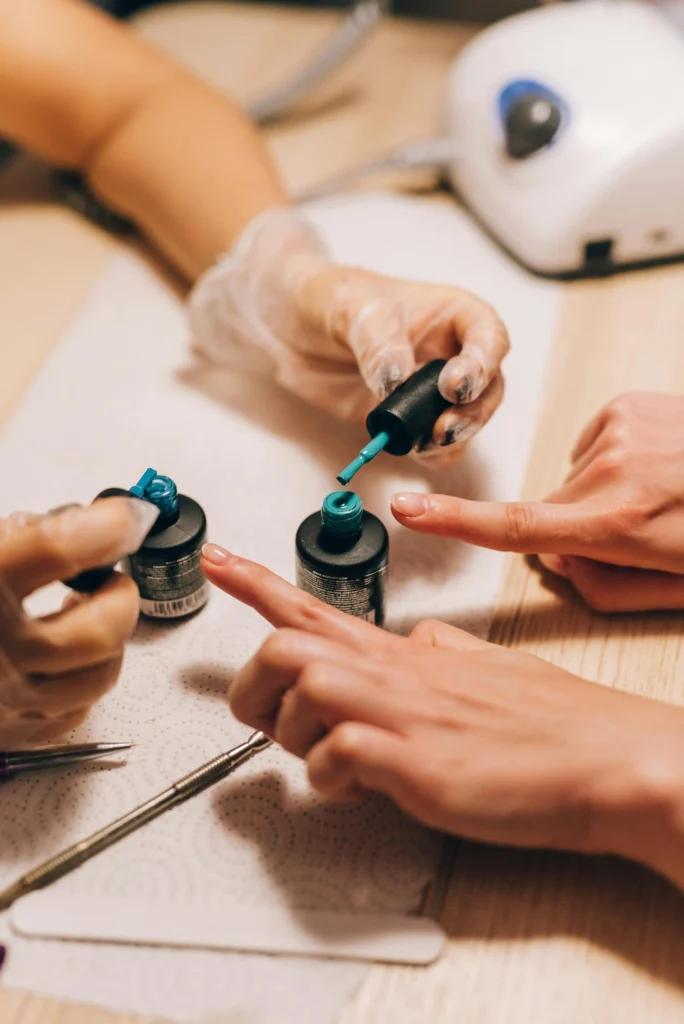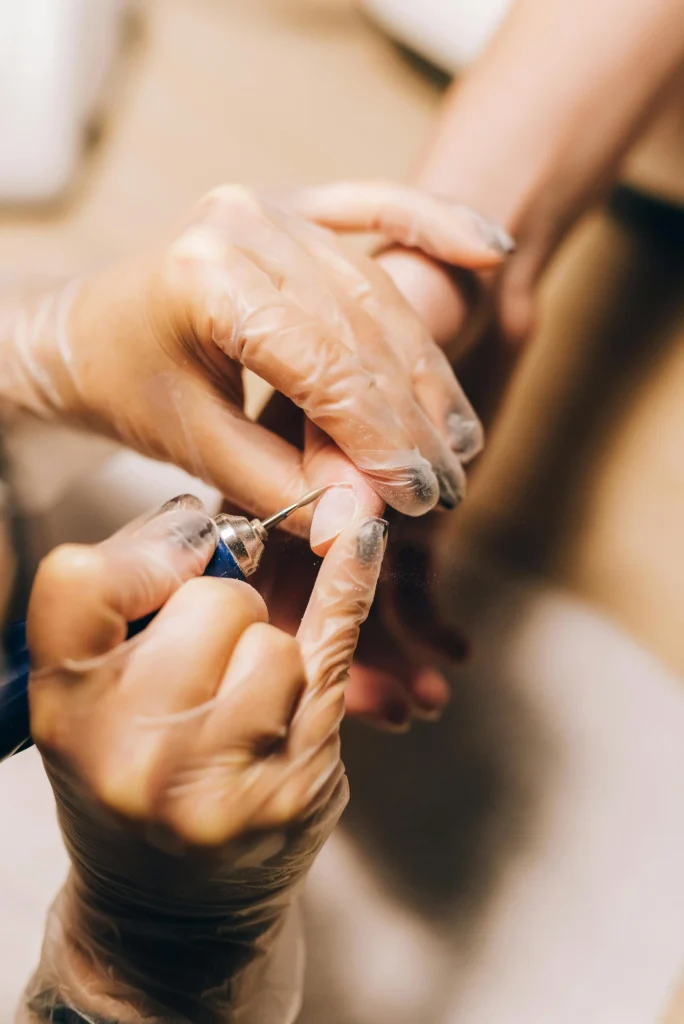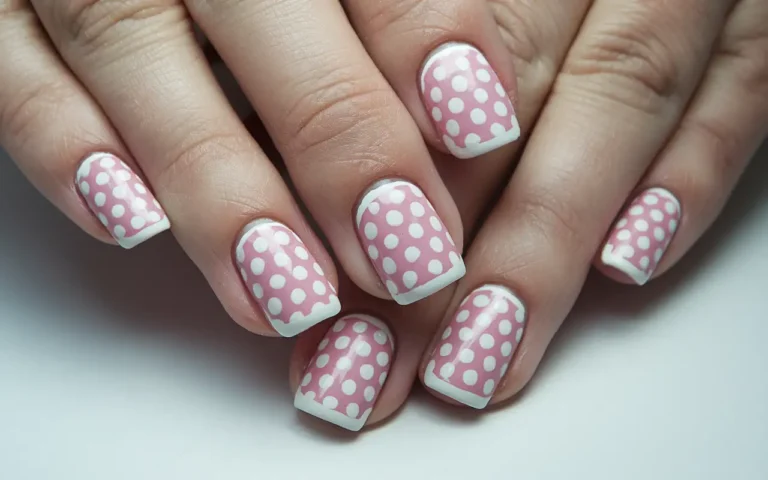The Truth About Nail Hardener: Is It Worth It?
You’ve probably stood in the nail care aisle, staring at those promising bottles of nail hardener, wondering if they’re the magic solution to your weak, brittle nails.
With countless products claiming to transform your nails from flimsy to fabulous, you deserve to know the real truth about what these products can and can’t do for you.
What Exactly Are Nail Hardeners?

Nail hardeners are specialized treatments designed to strengthen your nails by adding protective layers or delivering nutrients that support nail health.
These products typically contain ingredients like formaldehyde, calcium, protein, or various vitamins that manufacturers claim will make your nails stronger and less prone to breaking.
You’ll find two main categories of nail hardeners on the market.
The first type works by creating a hard, protective coating over your natural nail, similar to how a clear polish functions but with strengthening properties.
The second type focuses on nourishing your nails with ingredients that supposedly penetrate the nail plate to improve its structure from within.
Most nail hardeners come in liquid form that you apply like nail polish, though some are available as creams or serums.
The application process usually involves painting the product onto clean, bare nails and allowing it to dry completely before going about your day.
Understanding what you’re actually putting on your nails helps you make better decisions about which products might work for your specific nail concerns and lifestyle.
How Do Nail Hardeners Actually Work?

The science behind nail hardeners varies significantly depending on their active ingredients.
Formaldehyde-based hardeners work by cross-linking the keratin proteins in your nails, essentially creating chemical bonds that make the nail plate more rigid and less flexible.
When you apply these chemical hardeners, they penetrate slightly into the top layers of your nail and form these protein links.
This process can make your nails feel noticeably harder and more resistant to bending, which many people interpret as stronger nails.
However, this increased rigidity comes with a trade-off. Your nails become less flexible, which can actually make them more prone to cracking or snapping under pressure.
Think of it like the difference between a green twig and a dried branch – the dried branch is harder but breaks more easily when bent.
Protein-based and vitamin-enriched hardeners take a different approach. These products aim to supplement your nails with nutrients that support healthy growth.
While your nails can’t absorb nutrients the same way your skin does, some ingredients may provide temporary benefits by filling in microscopic gaps in the nail surface.
The Real Benefits You Can Expect
Nail hardeners can provide legitimate benefits, but you need to set realistic expectations about what they can accomplish.
The most immediate benefit you’ll likely notice is improved nail appearance, as most hardeners create a smooth, glossy finish that makes your nails look healthier and more polished.
For people with very soft or flexible nails, hardeners can provide temporary structural support that reduces bending and flexing during daily activities.
This can be particularly helpful if your job involves frequent hand washing or exposure to chemicals that weaken your nails.
Many users report that nail hardeners help them break the habit of nail biting or picking, simply because the hardened surface feels different and less satisfying to bite.
This psychological benefit can be significant for people trying to grow their nails longer.
The protective barrier that most hardeners create also shields your nails from environmental damage, much like a base coat protects against staining from colored polishes.
This protection can be valuable if you frequently expose your hands to harsh chemicals or excessive moisture.
The Hidden Drawbacks and Risks
Despite their promises, nail hardeners come with several potential drawbacks that manufacturers don’t always emphasize.
The most significant concern is that overly hardened nails can become brittle and more prone to breaking, especially at the tips where they experience the most stress.
Formaldehyde-based hardeners, while effective at creating rigid nails, can cause allergic reactions in sensitive individuals.
You might experience redness, swelling, or painful inflammation around your nail beds if you’re sensitive to this chemical.
Some countries have even restricted or banned certain formaldehyde concentrations in cosmetic products due to health concerns.
Overuse of nail hardeners can disrupt your nail’s natural moisture balance, leading to dryness and peeling.
Your nails need a certain amount of flexibility to handle daily stress, and products that remove this flexibility entirely can cause more harm than good.
Many people also develop a psychological dependence on these products, feeling like their nails are too weak to function without constant treatment.
This mindset can prevent you from addressing underlying health or lifestyle factors that might be contributing to weak nails in the first place.
Who Should Actually Use Nail Hardeners?

Nail hardeners work best for specific nail types and situations.
If you have naturally soft, flexible nails that bend easily but don’t necessarily break, you might benefit from occasional use of a gentle hardening treatment.
People who work with their hands extensively – such as healthcare workers, hairstylists, or mechanics – might find that hardeners provide temporary protection against occupational damage.
The key word here is temporary, as these products work best as short-term solutions rather than permanent fixes.
You’re also a good candidate for nail hardeners if you’re trying to grow your nails longer and need extra support during the transition period. Using a hardener for a few weeks while establishing better nail care habits can help you achieve your length goals.
However, you should avoid nail hardeners if you already have hard, brittle nails that tend to crack or split.
Adding more rigidity to already inflexible nails will likely worsen your problems rather than solve them.
Application Tips for Maximum Effectiveness
If you decide to try nail hardeners, proper application makes a significant difference in your results.
Start with completely clean, dry nails, removing all traces of old polish, oils, or lotions that might interfere with product adhesion.
Apply thin, even coats rather than trying to build up thickness quickly.
Most hardeners work better when applied in light layers that can properly bond with your nail surface.
Allow each coat to dry completely before applying the next one.
Follow the manufacturer’s instructions regarding frequency of use.
Many people make the mistake of thinking that more applications will yield better results, but overuse often leads to overly rigid nails that break more easily than before treatment.
Pay attention to your nails’ response to the product.
If you notice increased brittleness, cracking, or irritation, discontinue use immediately and give your nails time to recover before trying a different approach.
Alternatives That Might Work Better
Before investing in expensive nail hardeners, consider addressing the root causes of weak nails through lifestyle changes.
Proper nutrition plays a crucial role in nail health, and deficiencies in biotin, iron, or protein can contribute to nail weakness.
Regular moisturizing with cuticle oil or hand cream can improve nail flexibility and reduce breakage more effectively than hardening treatments.
Focus on products containing ingredients like jojoba oil, vitamin E, or shea butter that nourish both your nails and surrounding skin.
Simple protective measures often yield better long-term results than chemical treatments.
Wearing gloves during cleaning, avoiding using your nails as tools, and keeping them at a manageable length can prevent most breakage without requiring special products.
Professional manicures that include nail strengthening treatments might provide better results than at-home hardeners, especially if your nail technician can assess your specific nail type and recommend appropriate treatments.
The Cost-Benefit Analysis
Nail hardeners typically range from $8 to $30 per bottle, which might seem reasonable until you consider the ongoing cost of regular use.
Most products require reapplication every few days to maintain their effects, meaning a single bottle might last only a few weeks with consistent use.
When you factor in the potential need to purchase additional products to counteract dryness or brittleness caused by overuse, the true cost of nail hardener maintenance can become significant.
You might end up spending more on nail treatments than you would on regular professional manicures.
Consider also the time investment required for proper application and maintenance.
If you’re already pressed for time in your daily routine, adding another step to your nail care regimen might not be practical or sustainable long-term.
The opportunity cost is also worth considering – the money you spend on hardeners could be invested in higher-quality base coats, cuticle treatments, or professional nail services that might provide better overall nail health benefits.
What Nail Professionals Really Think
Most professional nail technicians have mixed opinions about nail hardeners, often recommending them only for specific situations rather than as general nail care solutions.
They frequently see clients who have damaged their nails through overuse of hardening products, requiring weeks or months of recovery treatments.
Experienced nail professionals typically emphasize that healthy nails start with proper care fundamentals rather than quick-fix products.
They often recommend focusing on cuticle health, proper filing techniques, and protection from environmental damage before turning to chemical treatments.
Many nail technicians report that clients who achieve the strongest, most attractive nails do so through consistent basic care rather than relying on specialized hardening products.
This professional perspective suggests that nail hardeners might be less essential than marketing would have you believe.
Some professionals do acknowledge that hardeners can be useful tools when used correctly and temporarily, but they stress the importance of understanding your nail type and using products appropriately rather than hoping for miraculous transformations.
Making the Right Decision for Your Nails
Your decision about nail hardeners should depend on your specific nail concerns, lifestyle, and long-term goals.
If you have a special event coming up and need temporary nail support, a gentle hardener might provide the boost you’re looking for.
However, if you’re dealing with chronic nail weakness, addressing underlying health factors and improving your basic nail care routine will likely provide better long-term results than relying on hardening products.
Consider starting with less aggressive approaches like regular moisturizing, protective base coats, and gentle nail care practices before investing in specialized hardening treatments.
You might find that these simpler methods provide the improvement you’re seeking without the potential risks of chemical hardeners.
Remember that healthy nails take time to grow and develop, and there’s no product that can instantly transform severely damaged nails into perfect ones.
Be patient with the process and focus on creating sustainable nail care habits rather than looking for quick fixes.
Conclusion
Nail hardeners can provide temporary benefits but aren’t miracle solutions for weak nails.
Focus on proper nail care fundamentals and realistic expectations for the best long-term results.







